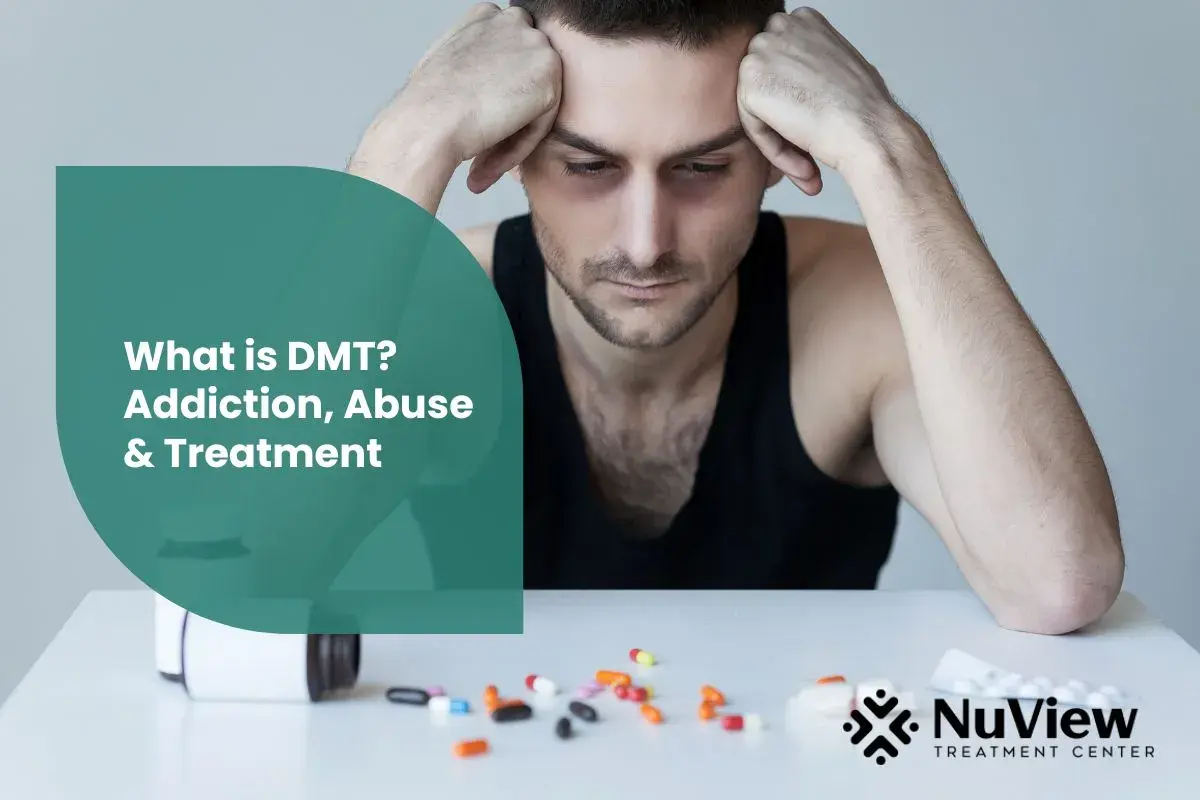How Medications Can Be a Gateway to Drug Addiction
Mental health disorders are serious medical issues that are plaguing the United States. Statistics show that one in four Americans—approximately 58 million people– suffer from treatable mental illness in this country.
To combat mental illness, doctors nationwide have relied on psychotropic medications to help people deal with their symptoms and return to normal.
While these medications, are effective as part of a comprehensive treatment plan, they also have a high addiction potential. This means that the connection between psychotropic medication and substance abuse is more frequent than most people think.
If you or a loved one have mental health issues and are seeking help, it is very important to understand how prescription drugs and substance abuse are connected. It is also crucial to understand how they can be addictive and can make your mental health worse in the long run.
What Are Psychotropic Medications?
Psychotropic medications are a group of drugs that are used to treat mental health disorders. They work by adjusting the levels of neurotransmitters, which are the messengers that allow brain cells to communicate with one another. There are five main types of psychotropic medications, each with its own specific uses, benefits, and side effects:
- Antidepressants: These are used to treat various mental health disorders, including depression, post-traumatic stress disorder, and generalized anxiety disorder.
- Anti-anxiety medications: These are used to treat anxiety disorders, such as panic disorder and social anxiety disorder.
- Stimulants: These are used to treat attention-deficit/hyperactivity disorder (ADHD) and narcolepsy.
- Antipsychotics: These are primarily used to manage psychosis, which is a loss of contact with reality that may include delusions or hallucinations. Psychosis can be a symptom of a physical condition or a mental disorder, such as schizophrenia, bipolar disorder, or severe depression.
- Mood stabilizers: These are used to treat bipolar disorder and other mood disorders.
Get Started With Nuview Treatment Center
Our dedicated professional staff is here to guide you or your loved one on the journey to lasting recovery, offering support every step of the way.
What are the Negative Effects of Psychotropic Medications?
The negative effects of psychotropic medications can vary depending on the specific medication and individual factors. However, there are some common side effects that have been reported:
- Gastrointestinal upset: This can include symptoms such as nausea, vomiting, diarrhea, or constipation.
- Weight changes: Some psychotropic medications can cause weight gain, while others may lead to weight loss.
- Sleep disturbances: Sleep problems can occur, ranging from insomnia to excessive sedation.
- Headaches: Some individuals may experience headaches as a side effect of psychotropic medications.
- Mood changes: Psychotropic medications can sometimes cause irritability or changes in mood.
- Fatigue: Feeling tired or experiencing low energy levels is a possible side effect.
- Eye problems: Certain medications may cause blurred vision or other eye-related issues.
- Tremors: Some individuals may experience involuntary shaking or tremors.
- Sexual side effects: Changes in sex drive or ability can occur as a result of psychotropic medications.
Are Psychotropic Medications Addictive?
Psychotropic medications can be addictive, but this varies by the specific medication. Most are not addictive, but some have high addiction potential.
Intentional misuse and abuse are unusual but can lead to addiction and health problems. It's essential to use psychotropic medications as prescribed and discuss concerns with a healthcare professional to minimize addiction risk.
Is Adderall Psychotropic?
Yes, Adderall is considered a psychotropic medication. It is a prescription medication that contains amphetamine and dextroamphetamine, both of which are stimulants that affect chemicals in the brain and nerves that contribute to hyperactivity and impulse control.
Get Started With Nuview Treatment Center
Dangers of Psychotropic Drugs
Psychotropic drugs can be dangerous when misused or abused, and can have negative effects on both physical and mental health. Here are some of the dangers associated with psychotropic drugs:
- Addiction potential: Some psychotropic medications have a high addiction potential, and the intentional misuse and abuse of these medications can lead to addiction and significant health problems.
- Dual diagnosis: The misuse and abuse of psychotropic medications can worsen mental health issues and create a dual diagnosis situation.
- Health problems: The side effects of psychotropic medications can create a variety of significant health problems, including gastrointestinal upset, weight changes, sleep disturbances, mood changes, and sexual side effects.
- Adverse drug reactions: Psychotropic medications have been associated with a variety of adverse drug reactions, including the development of neurotoxicity.
- Lack of benefit: Some studies suggest that long-term use of psychotropic drugs may cause more harm than good, and that many of these drugs have little to no benefit.
Help for People Addicted to Psychotropic Medication
While psychotropic drugs are often considered 'safe' because they're prescribed by healthcare professionals, some can lead to addiction and health issues. If you or someone you know is struggling with addiction to these medications, help is available.
At NuView Treatment Center, specialized in mental and behavioral health, we offer tailored programs to aid recovery from psychotropic drug addiction. Our options range from intensive sober living to outpatient rehab in Los Angeles, and we're committed to meeting individual needs, regardless of addiction severity.
Contact us to learn about personalized treatment options. Together, we can work towards recovery and well-being.
Frequently Asked Questions (FAQs)
What psychotropic drugs are commonly abused?
Commonly abused psychotropic drugs include benzodiazepines like Xanax, stimulants such as Adderall, and certain antidepressants.
What are 4 examples of psychotropic substances?
Four examples of psychotropic substances are benzodiazepines (e.g., Xanax), SSRIs (e.g., Prozac), stimulants (e.g., Adderall), and antipsychotics (e.g., Risperdal).
Is Xanax a psychotropic?
Yes, Xanax is a psychotropic medication. It belongs to the benzodiazepine class and is prescribed to treat anxiety and panic disorders.
How do psychotropic medications interact with other drugs or substances?
Psychotropic medications’ interactions with other drugs or substances depend on the specific medication and substance. Some may intensify the effects of alcohol, causing increased sedation or respiratory depression. Others may reduce the efficacy of medications or cause harmful side effects when combined. Consulting with a healthcare provider about all medications and substances taken is vital for safe and effective treatment.
Can psychotropic medications be taken during pregnancy?
The safety of using psychotropic medications during pregnancy varies with the specific drug and its potential effects on both mother and fetus. Some may be associated with birth defects or complications, while others are deemed relatively safe. Consulting a healthcare provider to assess the benefits and risks and to determine the appropriate course of action is essential for pregnant women or those planning to become pregnant.
- How Medications Can Be a Gateway to Drug Addiction
- What Are Psychotropic Medications?
- What are the Negative Effects of Psychotropic Medications?
- Are Psychotropic Medications Addictive?
- Is Adderall Psychotropic?
- Dangers of Psychotropic Drugs
- Help for People Addicted to Psychotropic Medication
- Frequently Asked Questions (FAQs)
- How Medications Can Be a Gateway to Drug Addiction
- What Are Psychotropic Medications?
- What are the Negative Effects of Psychotropic Medications?
- Are Psychotropic Medications Addictive?
- Is Adderall Psychotropic?
- Dangers of Psychotropic Drugs
- Help for People Addicted to Psychotropic Medication
- Frequently Asked Questions (FAQs)
Get Help Today!
Everyone is Welcome Here and We All Have Your Back
Your healing journey deserves a personalized approach. At NuView, we integrate expertise in behavioral therapy, mental health, and substance use treatment to create a customized recovery plan tailored to your unique needs.
Connect with our Admissions Specialists today.







Written By
Dr. Ryan Peterson